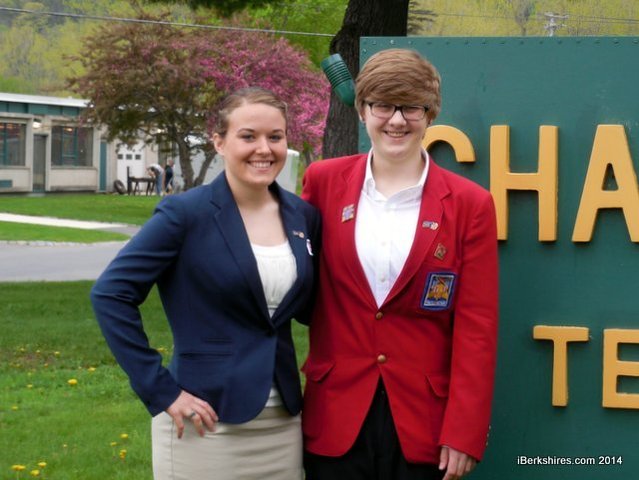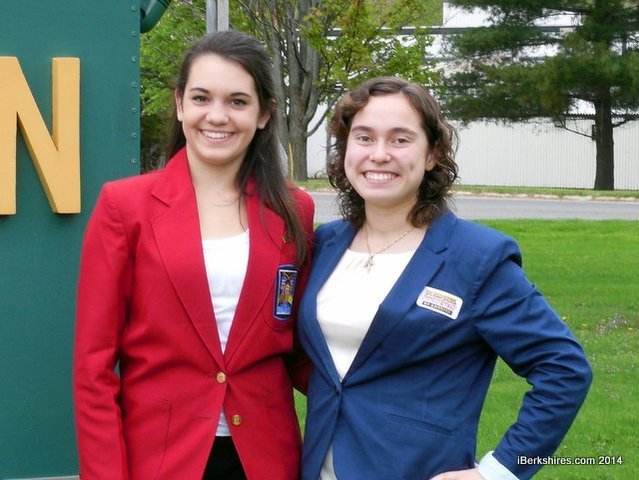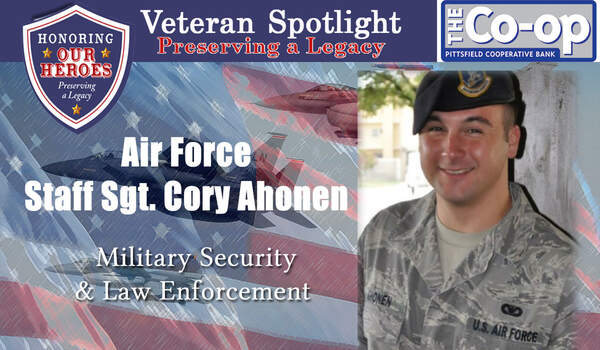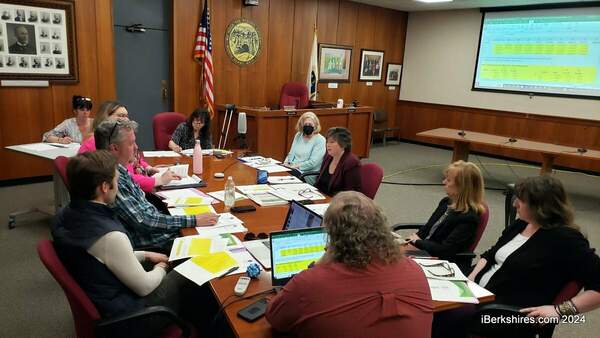

McCann Students Elected National, State Program Officers
 Four McCann students have been elected to state and national offices in Business Professionals for America and SkillsUSA. Four McCann students have been elected to state and national offices in Business Professionals for America and SkillsUSA. |
NORTH ADAMS, Mass. – Four McCann Technical School students have attained state and national offices after competing in the SkillsUSA and the Business Professionals for America conferences.
SkillsUSA and BPA challenge the skills of vocational school students in across a range of disciplines. Students can compete in district, state and national competitions.
Laura Heritage, junior who studies cabinetry, and Samantha Dorwin, a sophomore in machine tech, both left the SkillsUSA conference as state officers.
Heritage said chapter officers are elected in each school who can compete in district challenges. They take a test and are interviewed by judges. If selected, they can participate in the state challenge during which they must make a two-minute speech, campaign and answer a problematic question.
"It was overwhelming because it was big day, but it was a lot of fun because everybody was paying attention to you and trying to find the best qualities about you," Heritage said. "You got to talk about yourself and basically tell a bunch of people this is who I am, this is why you should vote me into office."
Heritage said the speeches can be themed or students can just advertise themselves. Heritage gave a gay pride-themed speech and Dorwin focused hers on sports and games.
"Your speech has to make an impact," she said. "There are 21 speeches all two minutes long."
Dorwin said each candidate was given a budget that they could use to purchase promotional material to hand out.
"We had personalized things like wrist bands with our slogans on them and pencils and stuff like that," Dorwin said. "Then we got to know the kids voting and introduce yourselves."
After, the candidates are asked a question they have not prepared for, with 30 seconds to think about an answer then one minute to answer.
Andrea Leal, a senior in business technology, and Elizabeth Culpepper, a junior who studies information technology, were elected at the BPA. The BPA works similar to SkillsUSA, but is a smaller operation. Leal was elected as a national secretary and Culpepper as state secretary.
Culpepper explained that BPA candidates also must campaign and give speeches, but instead of answering questions in front of a large group of people, they campaign more independently with people one on one.
"It’s intense because you are coming out and basically saying hi I’m a candidate and this is my speech," Culpepper said. "It's a smaller group … but they remember you more. Like in my group there were only three people running."
Culpepper said her slogan was "Liz She Knows the Biz." She said she also handed out glow sticks that said "Shine Bright with Liz" at the state completion.
Leal went to the national BPA conference in Indiana and is the first McCann student to receive the national rank. She said the competition is much larger and can be compared more to a SkillsUSA competition.
The competition starts with 15 candidates, and after the primaries, there are 10 who go to the BPA State Caucus.
Leal said she gave a NASCAR racing-themed speech because the competition took place in Indiana, where the Indianapolis 500 takes place. Her slogan was "Find Your Drive with Leal at the Wheel."
"I liked how the word drive could have dual meanings so that's why I liked that theme because my whole thing with BPA is being driven to take the next step and not just being complacent in one achievement," she said.
McCann Principal Justin Kratz said the two program competitions help students grow and is beneficial to their futures after high school.
"The campaign … part of the conference for young teenagers is a very daunting process, but they learn a lot from it," Kratz said. "They learn how to approach students from other schools and engage them in conversations, and that skill will benefit them tremendously latter on in life."
Leal said the BPA provided a very professional atmosphere and helped her step into more adult roles that better prepare her for the future.
"I grew up with two older siblings so I always wanted to be seen as an adult and to be recognized as one," she said. "At the conference people depend on you and you have to take on tasks traditionally an adult would do."
Although the SkillsUSA environment was competitive, Leal said fellow competitors and officials were all supportive.
"They celebrate the fact that you are there because it is a big deal even if you are just present there they celebrate the fact that you go to a technical school and that you have these skills," she said. "It's a competition, but it is also a celebration."
SkillsUSA and BPA adviser Pam Dorwin said the four girls are leaders at McCann and are helping to put the school and North Adams on the map.
"As an adviser I am so excited that these four young ladies have an opportunity to represent McCann at the levels they are representing us and they totally deserve it," Dorwin said. "They have worked hard to get into the leadership roles that they are in."
Tags: academics, BPA, McCann, SkillsUSA, vocational program,















